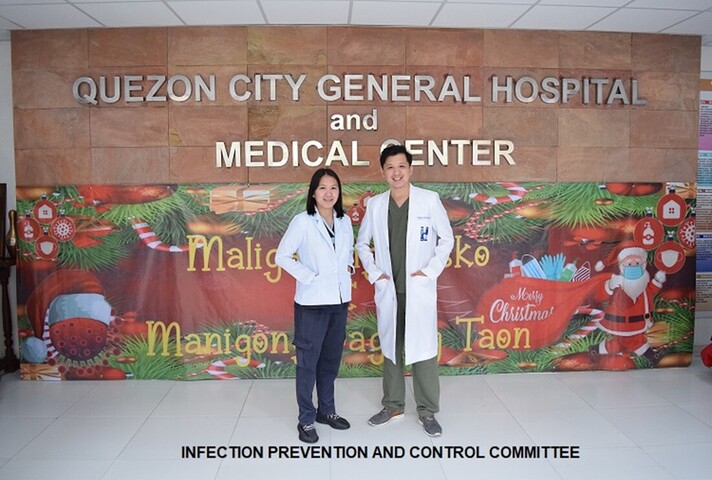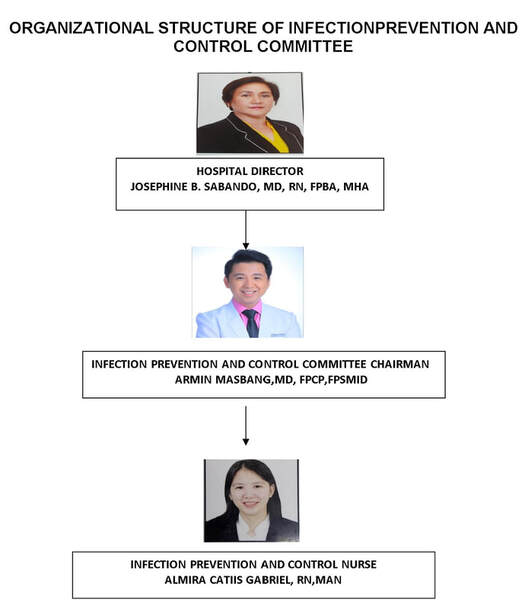INFECTION CONTROL UNIT
Staffing Functions
Infection Prevention and Control Committee Chairman
Infection Prevention and Control Nurse
Activities
Infection Prevention and Control Committee Chairman
- Takes a leading role in the effective functioning of infection control program
- Participates in the preparation of the documents in relation to infection control aspects.
- Involves in settling quality standards with regards to hospital infection and in monthly audit
- Assists in drawing up annual plans, policies and updates of infection control components in relation to infection control aspects.
Infection Prevention and Control Nurse
- Implements and coordinates surveillance, prevention and control activities
- Responsible for the day to day functions of the ICC
- Prepares accomplishment reports and yearly plan of activities for review by the IPCC and the administration.
- Conducts surveillance of healthcare- associated infections in coordination with the assigned doctor.
- Conducts outbreak investigation and institutes preventive control measures
- Evaluates materials and products relevant to infection control.
- Trains and orients new health care personnel
- Monitors infection control compliance among health care worker according to local standard regulations.
- Coordinates with public local health with regards to reportable communicable diseases.
- Provides expert consultative advice to staff health and other appropriate programs in matters relating to transmission of infections.
- Attend convention/ seminars/ conferences on infection control whenever feasible
- Conduct meetings with the different departments in relation to infection control issues and concerns.
- Conduct orientation of basic infection control lectures to all new QCGH employees and trainees.
- Give on-spot mini lectures of healthcare staff per department.
Activities
- Submit reports about the progress and effectiveness of the Infection Prevention and Control Program thru active monitoring.
- Disseminate the necessary information or update in relation to Infection Prevention and Control coordinate to all department and other hospital committee.
- Advise and educate the healthcare staff in relation in Infection Prevention and Control Program Components.
- “BEST IN MANAGEMENT OF INFECTION PREVENTION AMONG HEALTHCARE WORKERS AMONG LEVEL 3 HOSPITAL” IN THE COUNTRY 73RD PHILIPPINE HOSPITAL ASSCIATION ANNUAL NATIONAL CONVENTION.
- 1ST TERTIARY HOSPITAL IN NCR RECEIVE HIGHEST GRADE OF 97% IN INTEGRATED HOSPITAL OPERATION AND MANAGEMNET PROGRAM( IHOMP) ASSESSMENT AND VALIDATION

